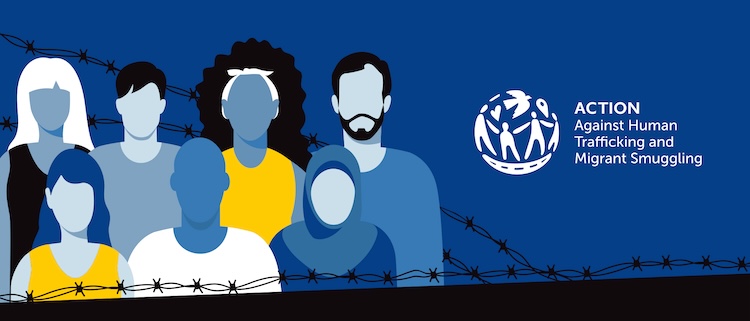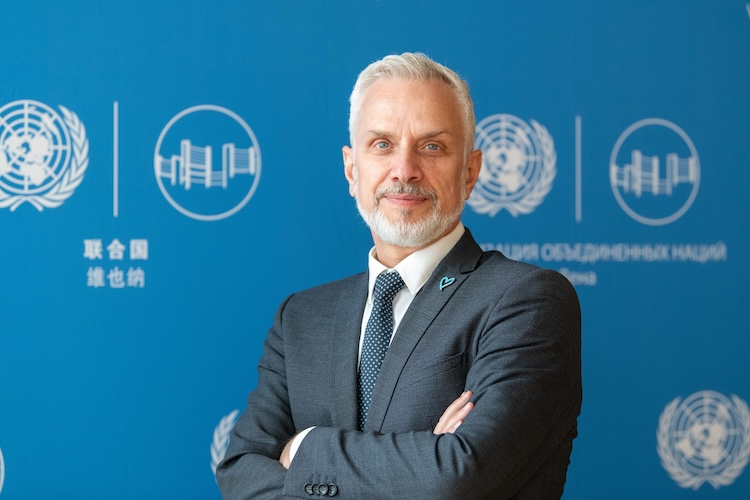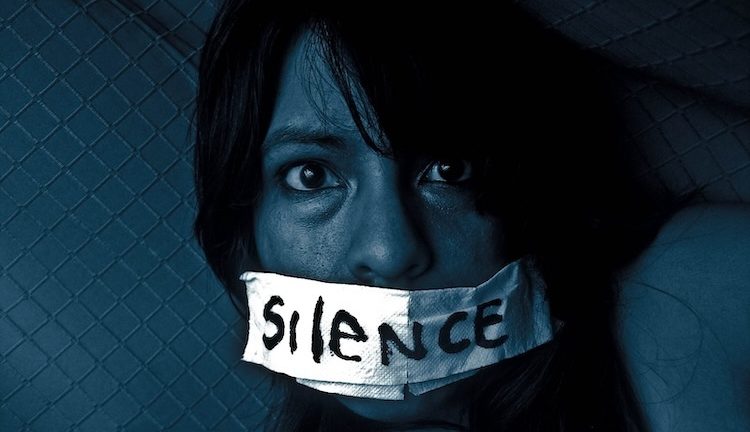By Aurora Weiss
VIENNA | 8 May 2024 (IDN) — Human trafficking and migrant smuggling are multi-billion-dollar businesses that have changed dramatically in recent years. Financial crises, armed conflicts, and forced displacement, catalysed by the pandemic, have strained justice systems, significantly reducing investigations, prosecutions, victim identification, and protection. In 2020 alone, the number of detected victims worldwide fell by 11 per cent compared to the previous year.
Against this backdrop, the United Nations Office on Drugs and Crime (UNODC) has decided to launch a global Action against Human Trafficking and Migrant Smuggling. UNODC will highlight the links between trafficking and smuggling and also other forms of organised crime such as cybercrime, money laundering, drug trafficking, firearms trafficking, and corruption.
A global network of specialised prosecutors to be established by the end of this year will focus on a “follow-the-money” approach to tighten money laundering safeguards and identify links with corruption, and other forms of organised crime.
“Over the past two decades, there was relative optimism that we could win the fight against trafficking and smuggling globally. Then things changed drastically. Progress achieved is today under threat,” said Ilias Chatzis, Chief of the UNODC Human Trafficking and Migrant Smuggling Section.
The involvement of organised crime and the rapid evolution of digital technologies have exacerbated the situation. Online technologies are regularly abused to exploit trafficking victims or advertise migrant smuggling services. One in three identified trafficking victims globally is a child. In some regions, children are mostly the majority of human trafficking victims.
They are trafficked for street begging, to commit petty crimes or to transport drugs. Material showing the sexual abuse of children is increasingly distributed online, making imperative the cooperation with digital companies. EUROPOL has noted an emerging form of child abuse by criminal networks in Europe that could also, in specific cases, qualify as human trafficking: recruitment in gangs.
Human trafficking for organ removal

All forms of human trafficking tend to be hidden, but human trafficking for organ removal is particularly so. Criminal networks profit from the desperation of patients and coerce vulnerable people into selling organs. Very few investigations are initiated on the issue of organ trafficking: only 0.1 per cent. People are trafficked for cells, and organ removal, women are trafficked to carry out a pregnancy, and insurance companies are often involved in these criminal processes.
Gender also plays a significant role in the crimes of human trafficking and migrant smuggling. Compared to men, women are disproportionately, and often more adversely, affected. In human trafficking, the majority of identified victims, or 60 per cent, are women and girls. When captured and exploited by traffickers, they are three times more likely than men to be subjected to physical or extreme violence. When transported across borders by smugglers, female migrants often face horrific sexual violence during the journey, ranging from inappropriate comments to outright sexual assault.
Women remain strikingly underrepresented in the very same criminal justice institutions tasked with combating these offences, especially in leadership positions—the reason for creating the GLO.ACT Women’s Network. Over the past four years, it has grown into a vibrant community of officials and women’s rights advocates, with a very collaborative and friendly atmosphere, and a spirit of camaraderie.
UNODC will expand its on-the-ground presence
Under the new Action, UNODC will also expand its on-the-ground presence, deploying resident experts to countries most in need of assistance, while redoubling its commitment to sustainable development and gender equality. Since the adoption of the UN Convention against Transnational Organized Crime and its Protocols against these crimes, UNODC has been at the forefront of the fight against human trafficking and migrant smuggling for over twenty years. These instruments have garnered near-universal ratification since the early 2000s, with 181 states acceding to the Trafficking Protocol and 151 states to the Smuggling Protocol.
“During this time, UNODC has emerged as the leading organization in the fight against human trafficking and migrant smuggling. We remain committed to the eradication of these crimes,” Chatzis said. He pointed out that there are over a thousand technical, legal and policy assistance activities spanning some 120 countries in recent years. He also referred to the training of over 35,000 anti-trafficking and anti-smuggling experts who have helped investigate and prosecute hundreds of cases and supported numerous victims of these crimes.
2023 “deadliest” year
Thousands of people are leaving their homes every day in search of safety, shelter, education, family reunion and employment opportunities. Desperate and faced with no other choice, migrants and refugees increasingly resort to services provided by smuggling networks. The year 2023. has been the deadliest year for migrants.
According to UN’s International Organization for (IOM), nearly 8,600 migrants lost their lives during their journey in 2023. Organized crime is becoming more involved in this multi-billion-dollar industry. Traffickers and smugglers, increasingly organized, often change from trafficking drugs and arms to the less risky and more profitable trafficking and smuggling of people. Almost 70 per cent of human trafficking cases globally are organized crime, and nine out of ten traffickers convicted are members of organized crime groups.
Migrant smuggling is also a lucrative business. Crossing the Mediterranean can cost up to US $6,000. In the Americas, criminal groups charge US $300 to allow migrants just enter the dangerous Darien Gap. The global business is estimated to amount to between US $5,5-7 billion each year. Online technology has changed the landscape dramatically. It is not only sexual exploitation, but also the recruitment of trafficking victims, and even the advertising of smuggling services through social media. Technological advances in communication have led to new forms of human trafficking. One of them is “Cyber scams,“ where trafficking victims are compelled to commit online fraud. This was first identified in Southeast Asia and now seems to be expanding to other regions of the world.
Global Survivor Forum

Ilias Chatzis, Chief of the UNODC Human Trafficking and Migrant Smuggling Section, told me that a large global conference on human trafficking and migrant smuggling is to be held in Vienna in 2025.
“A Global Survivor Forum bringing together victim assistance providers and survivor organizations from around the world will be held in Vienna by mid-2025. We want first to help countries to establish and develop a model of victim assistance and protection programs. A lot of countries don’t have that. A huge number of countries leave victim protection to the NGO, and they have unnoticeable state sponsor assistance, it needs to be a combination of both. The state needs to provide parameters for the assistance it is offered.
“Also, states must build and have a system that deals with a specific victim. Let’s say a woman trafficked for prostitution does not have the same needs as a male victim trafficked for forced labour in agriculture,“ said Chatzis.
As an immediate step, new centres of excellence will be set up in South Asia, Eastern Africa, and Eastern Europe in addition to those already existing in Latin America, North and West Africa, Central Asia, Southeast Asia and West Asia.
The New Action will complement UNODC’s existing country and regional programs, providing the connecting link and ensuring substantive support and technical expertise to ensure consistency and complementarity of all UNODC assistance provided to countries.
“There must be different approaches to their protection, from shelters to psychological help, etc. The plan is to have systemic models for the countries that will adopt it. At the same time, at the Global Forum in Vienna 2025, we will bring system providers from all over the world to share experiences and point out what we are not aware of.” [IDN-InDepthNews]
Top image credit: UNODC
Photo: A distressed woman with her mouth taped shut. CC BY 2.0


